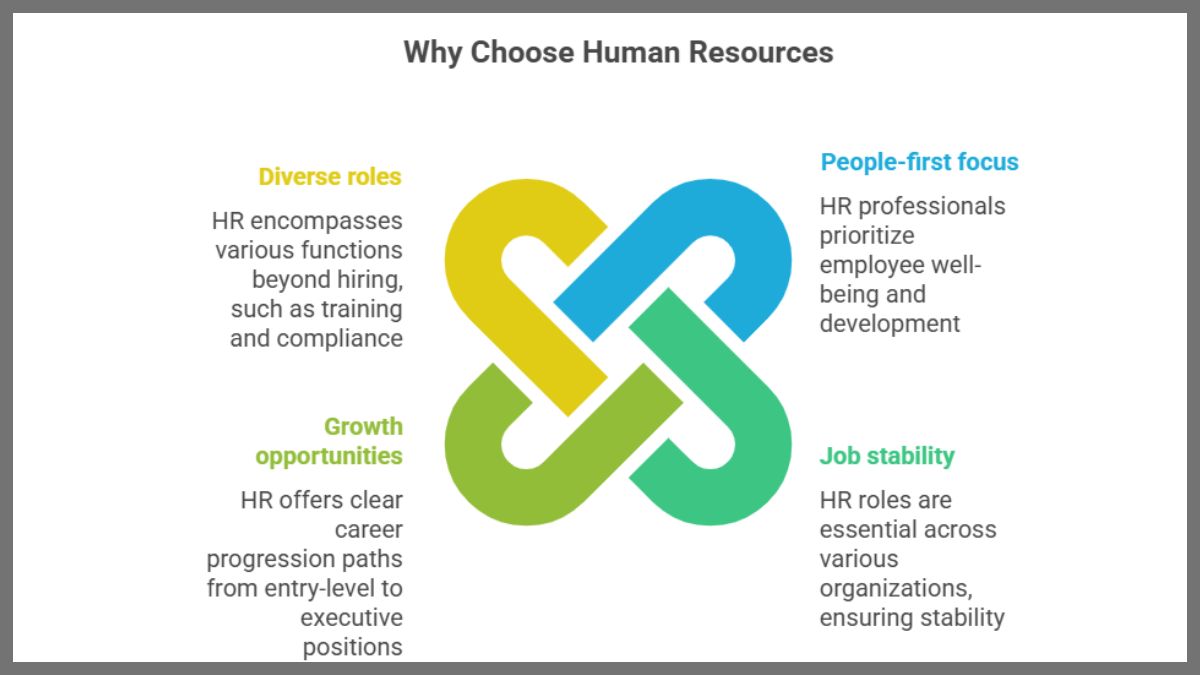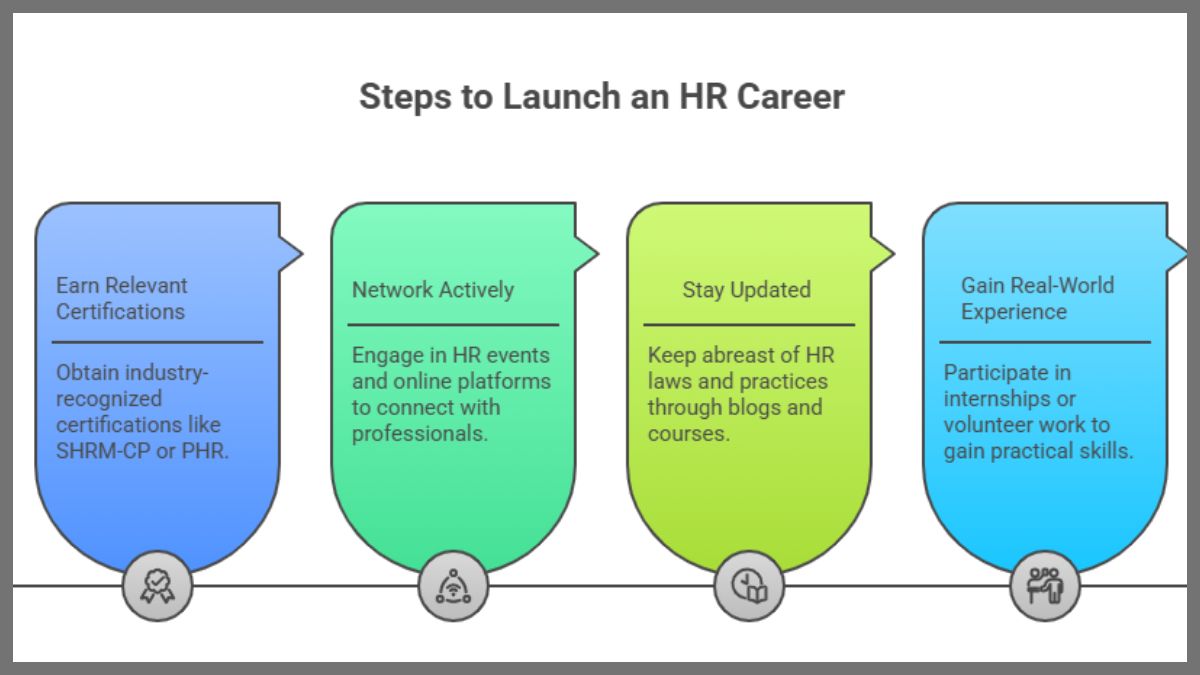Have you ever wondered what goes on behind the scenes at your workplace? From hiring the right people to ensuring employees are happy and productive—there’s a team that keeps everything running smoothly. That team is Human Resources (HR). If you enjoy working with people, solving problems, and helping others grow in their careers, a career in human resources might be just right for you. If you want to learn about some of the technology that helps HR teams manage these tasks efficiently, check out this guide to HR software in India.
In this blog, we’ll walk you through some of the most rewarding careers in Human Resources and give you practical tips on how to pursue them. Whether you’re just starting out or looking to make a career switch, there’s an HR role out there that could fit you perfectly.
Why Choose a Career in Human Resources?
Before we dive into the roles themselves, let’s take a moment to understand why so many people are drawn to this field.
- People-first focus: HR professionals work closely with employees, helping them thrive at work.
- Job stability: Every company needs HR. Whether it’s a startup or a large corporation, HR is essential.
- Growth opportunities: The field offers a clear path for career advancement, from entry-level positions to executive roles.
- Diverse roles: There’s more to HR than just hiring. You could work in training, compliance, payroll, or workplace culture.
If this sounds like your kind of work, let’s look at some popular HR roles and what it takes to get there.
Popular HR Career Paths and How to Get Started
1. Human Resources Assistant
Let’s start at the entry level. HR assistants are the backbone of HR teams, handling day-to-day tasks like scheduling interviews, organizing employee records, and managing paperwork. Think of them as the friendly face that keeps everything organized behind the curtain.
How to get started:
- Education: A bachelor’s degree in human resources, business administration, or a related field is often preferred.
- Skills: Strong organizational skills, attention to detail, and good communication.
- Experience: Internships or administrative job experience can help you get your foot in the door.
2. Recruiter
Do you enjoy meeting new people and figuring out what makes them tick? Then working as a recruiter might suit you. Recruiters find and screen candidates for open job roles. They often work closely with hiring managers to figure out what kind of person will shine in the position.
How to get started:
- Education: A degree in HR, psychology, or business is useful.
- Skills: Excellent interpersonal skills, decision-making ability, and a keen eye for talent.
- Experience: Starting as a recruiting coordinator or assistant can help you build experience.
3. Training and Development Specialist
Have a knack for teaching others? Training specialists help employees grow by developing workshops, training sessions, and materials. They play a vital role in making sure employees have the skills to succeed and move up in their careers.
How to get started:
- Education: A degree in education, HR, or instructional design can be helpful.
- Skills: Public speaking, creativity, and a deep understanding of learning methods.
- Experience: Start by volunteering to run small training sessions or shadow someone in your company’s training team.
4. HR Manager
Once you’ve gained experience, you might aim for a managerial role. HR managers oversee HR departments and take charge of hiring, employee relations, and workplace policies. In simple terms, they lead the team and make strategic decisions that impact the whole company.
How to get started:
- Education: A bachelor’s degree is a must, and a master’s degree or MBA can boost your chances.
- Skills: Leadership, problem-solving, and a solid understanding of employment laws.
- Experience: Aim to build 3–5 years of experience in HR before moving into a managerial role.
5. Compensation and Benefits Manager
Money matters—and in this role, you’ll help ensure employees are paid fairly and receive the right benefits. From setting salary structures to managing health insurance plans, compensation managers balance employee happiness with company budgets.
How to get started:
- Education: A background in finance, business, or HR is important.
- Skills: Analytical thinking, attention to detail, and a numbers-driven mindset.
- Experience: Start in an HR assistant or specialist role with a focus on compensation or data analysis.
6. Employee Relations Manager
Workplace conflict can happen anywhere, but it’s how a company handles it that makes the difference. Employee relations managers help resolve issues, mediate disputes, and promote a positive work environment.
How to get started:
- Education: Degrees in psychology, law, or HR can be beneficial.
- Skills: Empathy, conflict resolution, and a strong understanding of labor laws.
- Experience: Working in HR or legal departments can help build the necessary experience.
7. HR Director or Chief Human Resources Officer (CHRO)
This is the top of the HR ladder. HR directors and CHROs set HR strategy, align it with business goals, and lead large teams. It’s a big responsibility, but for those with passion and experience, it’s a rewarding role.
How to get started:
- Education: An advanced degree like an MBA is often preferred.
- Skills: Strategic thinking, leadership, and a deep understanding of business operations.
- Experience: At least 10–15 years of varied experience in HR roles.
Tips to Launch Your Human Resources Career
Getting started in HR doesn’t have to be overwhelming. Here are a few simple steps that can help you build momentum:
- Earn relevant certifications: Look into courses like SHRM-CP or PHR, which are well-respected in the industry.
- Network actively: Attend HR events, connect on LinkedIn, or join professional groups to meet others in the field.
- Stay updated: HR laws and practices change. Follow blogs, attend webinars, and take short courses to keep your knowledge fresh.
- Gain real-world experience: Internships or volunteer work at small businesses and nonprofits can be excellent stepping stones.
And if you’re getting ready for HR job interviews, this guide to common HR interview questions and answers can help you prepare with confidence.
Final Thoughts
A career in Human Resources is more than just paperwork and rules. It’s about connecting with people, making workplaces better, and helping others succeed. Whether you’re drawn to recruiting, training, policy-making, or leadership, HR has a role that can match your interests and strengths.
So, what’s your next step? Maybe it’s signing up for a course, updating your resume, or reaching out to someone already working in HR. Whatever it is, start today—because building a career in HR could be your path to a meaningful, people-centered profession.
Have questions about HR careers or want to share your journey? Drop a comment below—we’d love to hear from you!






